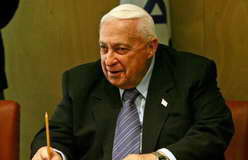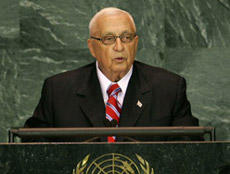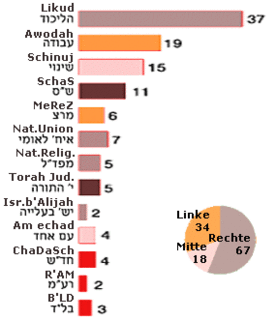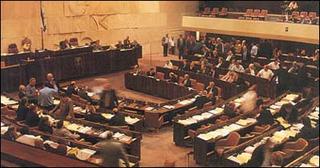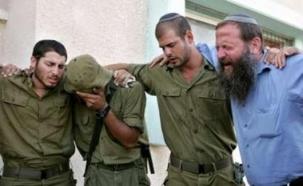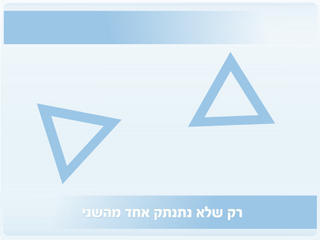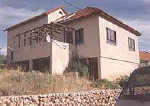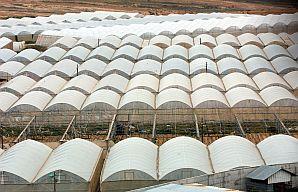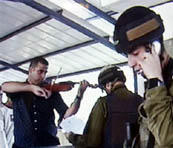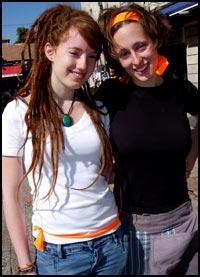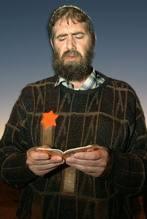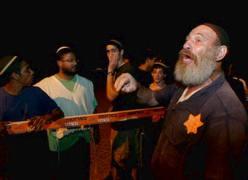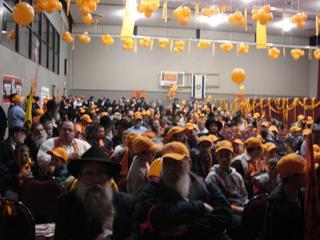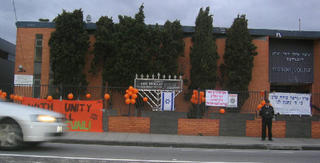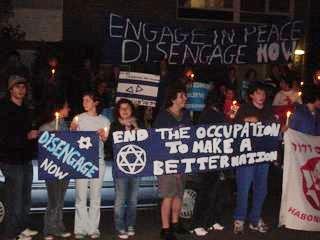Having just returned from a three-week visit to Israel, I have many thoughts about our amazing state, her people and their ideologies. On my journey I interviewed people from the left and right, religious and secular. On the spiritual journey, I went to Sephardi and Ashkenzi shuls in Ramat Gan, Shira Hadasha and Kedem in Jerusalem, and finally Moshav Meor Modiin that was by far the most enthusiastic and genuine davening I have ever experienced.
What struck me most on the visit was the way secular Israelis celebrate Yom Kippur.
Not a Fish writes:
Imagine, if you will, the busiest, noisiest, most congested street you know; always jammed with cars, buses, trucks whizzing past, horns peeping, hundreds of people filling the sidewalks, rushing this way and that.
And now try to mentally visualize that same street, completely empty, eerily silent. No vehicles moving on it, not even one, sidewalks empty of passersby, besides maybe the occasional family, walking slowly and reverently towards their synagogue.
And then you hear it, a low clicking, whirling sound. Soon there is a sight to go with the sound, a solitary guy on a bike, riding boldly, right in the middle of the wrong side of the road. He’s soon followed by a group of kids in their early teens, about six of them, racing their bikes, shouting out to each other. Next to go passed - a couple on roller blades, holding hands; and then more bikers, mainly children of various ages, many in packs, but quite a few serious adult bikers too, with all the fancy gear.
This is Tel Aviv on Yom Kippur, the best place to be in the world if you are a secular kid and you possess a bicycle. There is nowhere you can’t go, complete and utter freedom, unheard of, unthinkable. The next day the gangs of kids tell stories of how they reached as far as Herzliya and Rishpon in the north. An all time favourite is the Ayalon Freeway, which cuts through the east of Tel Aviv all along. For secular Tel Aviv kids, used to the restrictions of living in the middle of a busy city with all its dangers, Yom Kippur is a day of breaking free, a day of personal independence.
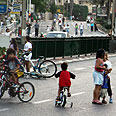
Spending the Chag in Ramat Gan, I was amazed by the 100’s of kids on
bikes I saw that day. Another thing that amazed me was that 1000’s of people also went to shule. However, shule in Ramat Gan is very different from Melbourne. The shuls I visited were filled with mostly once a year Jews(nothing unexpected here), but the interesting part of the story, is what went on outside the shule.
For every person in the shule, there was a person and a half in the street. They all bring chairs, gather round, talk, catch up on gossip, and enjoy the balmy autumn weather.
Is this a sign for hope or despair?
 Despair:
Despair: There is a baal shem tov story that retells how the Rabbi used to have a special place, where he lit a special fire, and say a special prayer when the Jewish people were in trouble. Later generations would forget the place, forget how to light the fire, and forget the prayer, and so, the story would suffice.
So too, the secular Israelis of Ramat Gan, have forgotten the prayers(no one had siddurim), forgotten the meaning of the chag(few could tell me any more about Yom kippur other than it being a day “when God forgiveness us”) and forgotten the rituals. What did they remember was that their grandparents went to shule on Yom Kippur, so they to must also go to shule, but only to sit outside, for the interior is a foreign land.
Hope: Perhaps the Israelis are reinventing the chag. No one does anything on the chag. Have you ever wondered what the world would like if everyone kept shabbes? This is what YK feels like in Israel. There are no cars, No TV shows(although the DVD shops do a roaring trade the day before the chag) no radio programs, no busses and trains, and even the intl airport shuts for the day. People talk to one another, the cell phones are off, and in the streets one feels a party atmosphere, similar to Chanuka in the Park or In One Voice.
I’m not sure what to make of the secular Yom Kippur. Experiencing the chag out of the beit knesset is an experience in itself. I wonder how the next generation will remember the chag?
Read also:
Spending YK on a bicycle seems like a terrible waste
Is the secular Yom kippur a viable alternative? What does it say about the way we experience our religion in a Jewish homeland?
